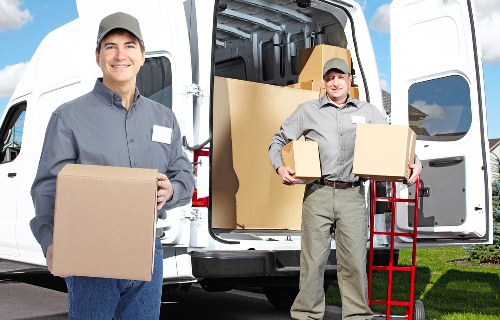Council Rubbish Collection Southend On Sea

Managing household waste is a vital service that ensures our communities remain clean, healthy, and environmentally friendly. In Southend On Sea, the Council Rubbish Collection service plays a crucial role in maintaining the town’s cleanliness and sustainability.
The Southend On Sea Council offers a comprehensive rubbish collection service that caters to both residential and commercial properties. Understanding the schedule, types of waste collected, and recycling guidelines can help residents effectively manage their waste and contribute to a greener environment.
Residents are encouraged to separate their waste into recyclables, general waste, and bulky items. This separation not only makes the collection process more efficient but also promotes recycling and reduces landfill usage.
Rubbish Collection Schedule

The Council Rubbish Collection in Southend On Sea follows a structured schedule to ensure timely and efficient waste management. Typically, waste collection occurs weekly, with specific days allocated for different types of waste.
General waste is usually collected once a week, while recycling collections might have a different schedule. It is essential for residents to check their specific collection days to avoid missing pickups and ensure their waste is disposed of correctly.
During holidays or unforeseen circumstances, there might be changes to the collection schedule. The council usually notifies residents in advance through their website or local notices.
Types of Waste Collected

The Southend On Sea Council accepts various types of waste to cater to the diverse needs of its residents. The primary categories include:
- General Waste: Non-recyclable household waste that includes items like food scraps, diapers, and other biodegradable materials.
- Recyclables: Materials such as paper, cardboard, glass bottles, aluminum cans, and certain plastics.
- Bulky Waste: Large items that do not fit into regular bins, such as furniture, appliances, and garden waste.
- Hazardous Waste: Items like batteries, chemicals, and electronics that require special handling.
Proper segregation of waste into these categories ensures efficient collection and processing, minimizing environmental impact.
Recycling Guidelines

Recycling is a cornerstone of Southend On Sea’s waste management strategy. The council provides clear guidelines to help residents separate recyclables from general waste effectively.
Residents should rinse and clean recyclables before placing them in designated bins. Contaminated materials can contaminate entire batches of recyclables, making them unsuitable for processing.
The council also promotes the use of recycling bins, which are provided to all households. These bins are color-coded to differentiate between various types of recyclables, making it easier for residents to sort their waste correctly.
Bulky Waste Collection

Handling bulky waste requires a different approach compared to regular waste. Southend On Sea Council offers a dedicated bulky waste collection service to manage large items that cannot be disposed of through standard collection methods.
Residents can schedule bulky waste pickups by contacting the council. It is advisable to arrange pickups in advance to ensure timely collection and avoid piling up of unwanted items.
Items eligible for bulky waste collection include furniture, large appliances, garden equipment, and other sizable household items. Proper scheduling helps the council allocate resources efficiently and maintain the town's cleanliness.
Managing Hazardous Waste
Hazardous waste poses significant risks to both the environment and public health if not handled correctly. Southend On Sea Council provides specific guidelines for disposing of hazardous materials.
Residents should not place hazardous waste in regular bins. Instead, they should take advantage of designated collection points and scheduled hazardous waste drop-off events organized by the council.
Proper disposal of hazardous waste ensures that these materials are treated safely, preventing contamination and promoting a healthier community.
Recycling Centers and Facilities
To support efficient waste management and recycling efforts, Southend On Sea Council has established several recycling centers and facilities. These centers serve as collection points for various types of recyclable materials and hazardous waste.
Residents can visit these centers to dispose of items that are not collected through regular waste services. The facilities provide resources and information on proper recycling practices, helping the community engage in sustainable waste management.
The council regularly updates and maintains these centers to ensure they meet the community's needs and support the town’s environmental goals.
Local Regulations and Policies
Southend On Sea Council has implemented several regulations and policies to govern rubbish collection and waste management. These policies aim to promote responsible waste disposal, recycling, and environmental sustainability.
Residents are required to adhere to collection schedules, segregate waste appropriately, and follow guidelines for disposing of specific types of waste. Non-compliance can result in fines or penalties, emphasizing the importance of following council regulations.
The council also engages in community outreach programs to educate residents about waste management practices and the importance of reducing, reusing, and recycling materials.
Benefits of Council Rubbish Collection
The Council Rubbish Collection service offers numerous benefits to the residents of Southend On Sea. These benefits extend beyond mere waste disposal, contributing to the town’s overall quality of life.
Effective rubbish collection helps maintain public health by reducing the presence of waste that can attract pests and spread diseases. It also keeps the environment clean, enhancing the aesthetic appeal of the town.
Moreover, the emphasis on recycling and proper waste management supports environmental sustainability, reducing the town’s carbon footprint and conserving natural resources.
How to Report Missed or Irregular Collections
Occasionally, residents might experience missed or irregular rubbish collections. To address such issues, Southend On Sea Council provides channels for reporting problems and seeking assistance.
Residents can report missed collections by contacting the council through their official website, phone, or local offices. Providing specific details, such as the address and date of the missed collection, helps the council respond promptly.
The council prioritizes resolving collection issues to ensure that all residents receive consistent and reliable rubbish collection services.
Reducing Household Waste
Reducing household waste is a collective effort that involves conscious choices and sustainable practices. Southend On Sea Council encourages residents to adopt waste reduction strategies to minimize their environmental impact.
Simple actions like composting organic waste, using reusable containers, and repairing rather than discarding items can significantly reduce the amount of waste generated by households.
By minimizing waste, residents contribute to the council’s waste management efforts, promoting a cleaner and more sustainable community.
Local Resources and Support
Southend On Sea Council provides various resources and support systems to assist residents in managing their waste effectively. These resources include informational guides, online tools, and community programs focused on waste reduction and recycling.
Educational workshops and seminars are also available to educate residents about best practices in waste management and environmental sustainability.
Utilizing these resources can empower residents to take an active role in maintaining a clean and green Southend On Sea.
Technology and Innovation in Waste Collection
Embracing technology and innovation is key to improving waste management systems. Southend On Sea Council leverages modern technologies to enhance the efficiency and effectiveness of its rubbish collection services.
Smart waste bins equipped with sensors can monitor fill levels, optimizing collection routes and frequencies. This not only reduces operational costs but also minimizes environmental impact through reduced vehicle emissions.
Additionally, data analytics helps the council identify patterns in waste generation, enabling better planning and resource allocation.
Community Engagement and Participation
Active community engagement is essential for the success of waste management initiatives. Southend On Sea Council encourages residents to participate in waste reduction programs and recycling efforts.
Community clean-up events, recycling drives, and educational campaigns are organized to foster a sense of responsibility and collective action among residents.
By involving the community, the council ensures that waste management strategies are supported and sustained, leading to a cleaner and healthier town.
Environmental Impact of Rubbish Collection
Effective rubbish collection has a significant positive impact on the environment. Southend On Sea Council’s waste management practices aim to reduce landfill usage, lower greenhouse gas emissions, and conserve natural resources through recycling.
Proper waste segregation and recycling reduce the need for raw materials, preserving natural habitats and biodiversity. Additionally, minimizing waste transportation through optimized collection routes decreases carbon emissions, contributing to a healthier planet.
These environmental benefits align with broader sustainability goals, positioning Southend On Sea as a responsible and eco-friendly community.
Financial Considerations
Managing rubbish collection efficiently also has financial benefits. By reducing waste through recycling and composting, the council can lower disposal costs and minimize the need for expanding landfill sites.
Residents also benefit financially by potentially reducing waste disposal fees through proper waste segregation and minimizing the purchase of single-use items.
Investment in waste management technologies and infrastructure can lead to long-term savings and more sustainable budgeting for the council.
Challenges in Rubbish Collection
Despite the robust rubbish collection system, Southend On Sea Council faces several challenges. Increasing waste volumes, especially during peak seasons, can strain collection resources and infrastructure.
Ensuring compliance with waste segregation guidelines among all residents is another ongoing challenge. Contaminated recyclables and improper disposal practices can hinder recycling efforts and reduce the overall effectiveness of the waste management system.
Addressing these challenges requires continuous community engagement, investment in waste management technologies, and adaptable policies to meet evolving needs.
Future Plans for Waste Management
Looking ahead, Southend On Sea Council is committed to enhancing its waste management services. Future plans include expanding recycling programs, investing in more advanced waste processing technologies, and increasing community involvement in sustainability initiatives.
The council is also exploring partnerships with local businesses and organizations to promote innovative waste reduction strategies and circular economy practices.
These forward-thinking approaches aim to create a more sustainable and resilient waste management system that can adapt to the town’s growing needs.
Top 15 Nearby Areas to Southend On Sea
Southend On Sea is surrounded by several nearby areas that also benefit from the council’s rubbish collection services. These areas include:
- Prittlewell: Located just west of Southend, Prittlewell is known for its historical sites and efficient waste collection services.
- Westcliff-on-Sea: Situated close to the coast, Westcliff-on-Sea enjoys regular rubbish collection and robust recycling programs.
- Thorpe Bay: A serene residential area, Thorpe Bay benefits from scheduled rubbish pickups and community recycling initiatives.
- Leigh: Known for its vibrant community, Leigh has reliable rubbish collection and supports various waste reduction programs.
- Eastwood: Proximity to Southend ensures Eastwood receives timely rubbish collection and access to recycling facilities.
- St. Lawrence: A close-knit community with regular rubbish collection and active participation in recycling efforts.
- Belfairs: Belfairs benefits from the council’s comprehensive rubbish management services and waste educational programs.
- West Leigh: With convenient access to waste collection services, West Leigh residents actively engage in recycling and waste reduction.
- Chalkwell: Chalkwell’s coastal location includes efficient rubbish collection and specialized recycling services for local businesses.
- Westborough Park: A residential area with regular rubbish pickups and community-supported recycling initiatives.
- Bonsall: Bonsall enjoys consistent rubbish collection services and participates in the council’s waste reduction campaigns.
- Thorpe Hall: Thorpe Hall residents have access to reliable rubbish collection and various recycling options.
- Avenue: Avenue benefits from organized rubbish collection schedules and community recycling programs.
- Arthur Road: A bustling area with efficient rubbish collection services and active involvement in recycling efforts.
Each of these nearby areas contributes to the overall effectiveness of the council’s rubbish collection services, ensuring a clean and sustainable environment across Southend On Sea and its surroundings.
Conclusion
Council Rubbish Collection in Southend On Sea is a vital service that supports the community’s cleanliness, health, and environmental sustainability. By understanding the collection schedules, adhering to waste segregation guidelines, and participating in recycling initiatives, residents can significantly contribute to maintaining a clean and green town.
The council’s commitment to efficient waste management, coupled with community engagement and innovative solutions, ensures that Southend On Sea remains a pleasant and sustainable place to live.
Embracing responsible waste management practices not only benefits the environment but also enhances the quality of life for all residents, making Southend On Sea a model for effective council rubbish collection systems.
Frequently Asked Questions
1. What items are considered bulky waste in Southend On Sea?
Bulky waste includes large items such as furniture, appliances, garden equipment, and other sizable household items that cannot be disposed of through regular waste collection methods.
2. How can I schedule a bulky waste pickup?
Residents can schedule a bulky waste pickup by contacting the Southend On Sea Council through their official website, phone, or local offices. It is recommended to arrange pickups in advance to ensure timely service.
3. Are there any fees associated with rubbish collection?
Generally, standard rubbish collection services are included in the council tax. However, there may be fees for specific services such as hazardous waste disposal or extra bulky items. It is advisable to check the council’s official website for detailed information on any applicable fees.
4. What should I do if my recycling bin is contaminated?
If your recycling bin is contaminated with non-recyclable items, it can hinder the recycling process. Avoid placing unsuitable items in the recycling bin and ensure that recyclables are clean and dry. If contamination occurs, contact the council for guidance on proper disposal methods.
5. How can I reduce my household waste?
Reducing household waste can be achieved through practices such as composting organic waste, using reusable containers, repairing items instead of discarding them, and minimizing the purchase of single-use products. Adopting these habits can significantly lower the amount of waste generated by your household.